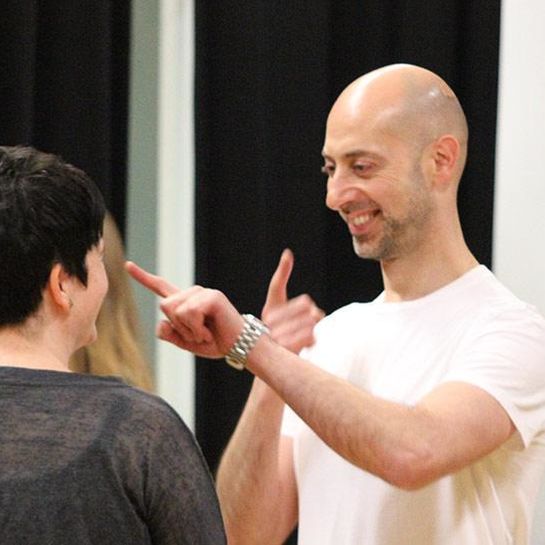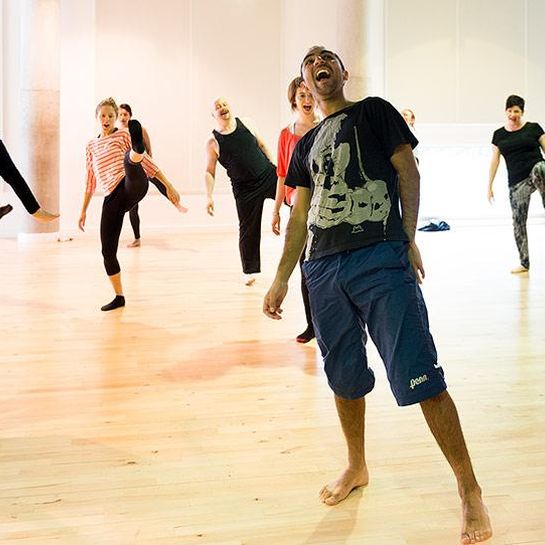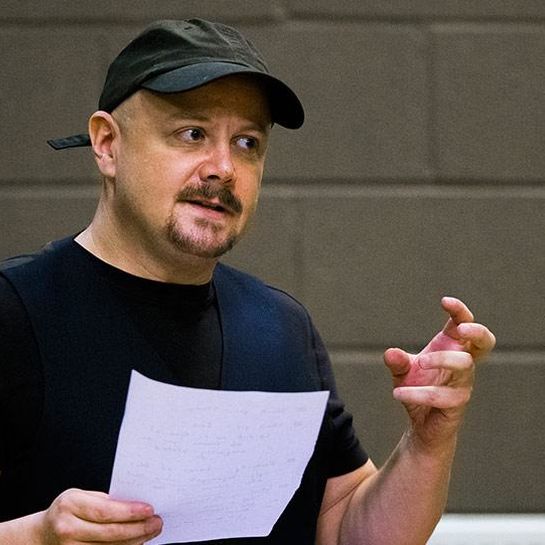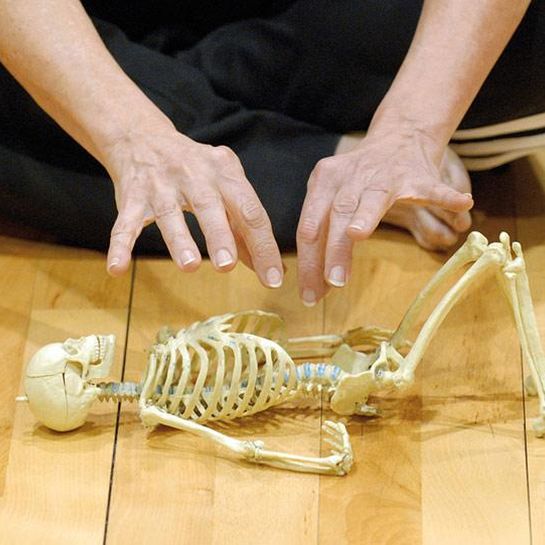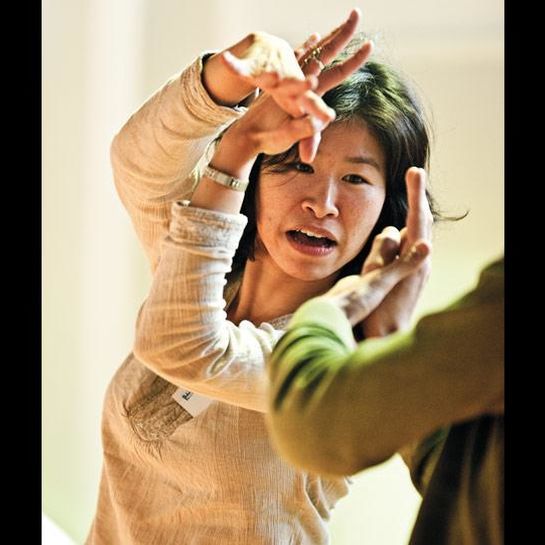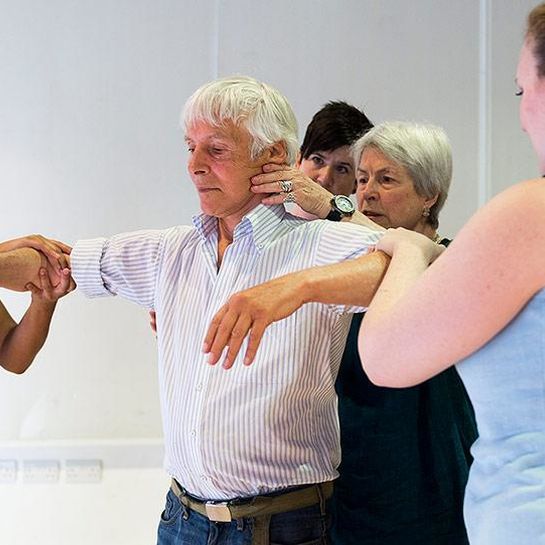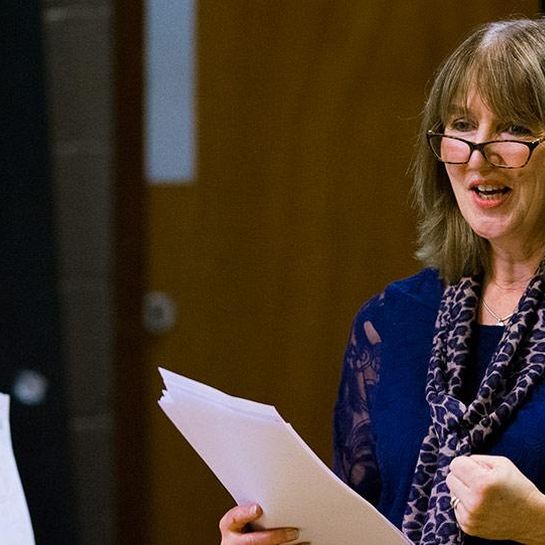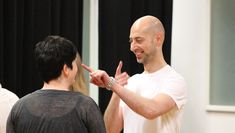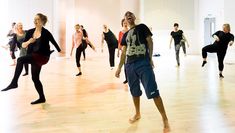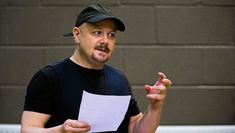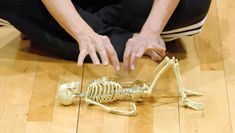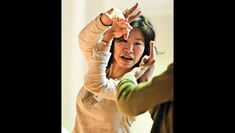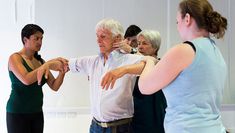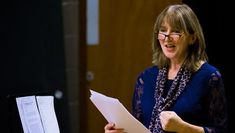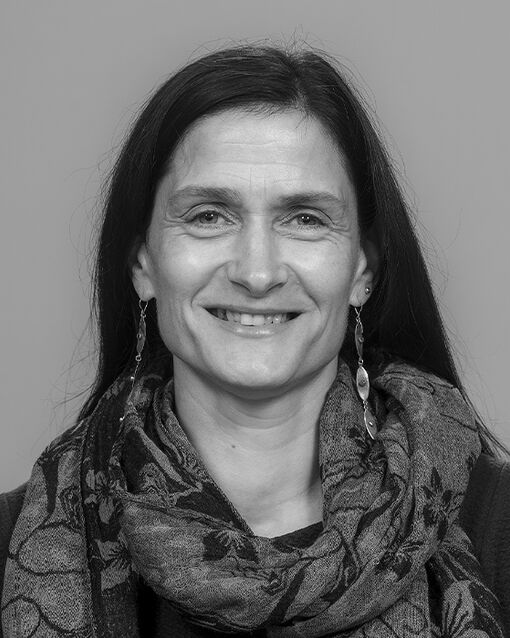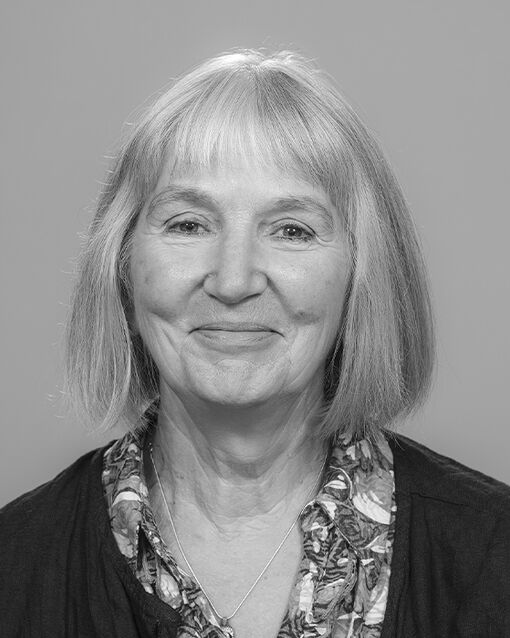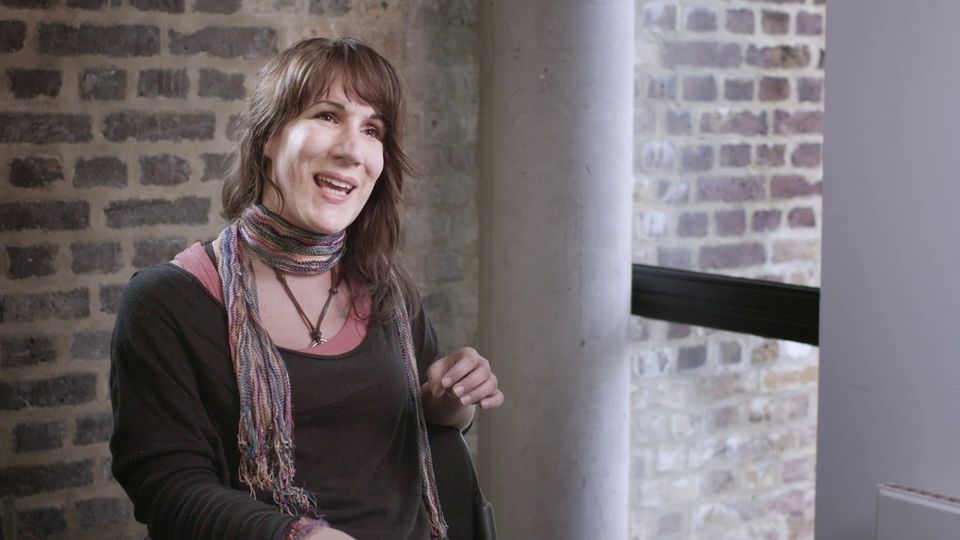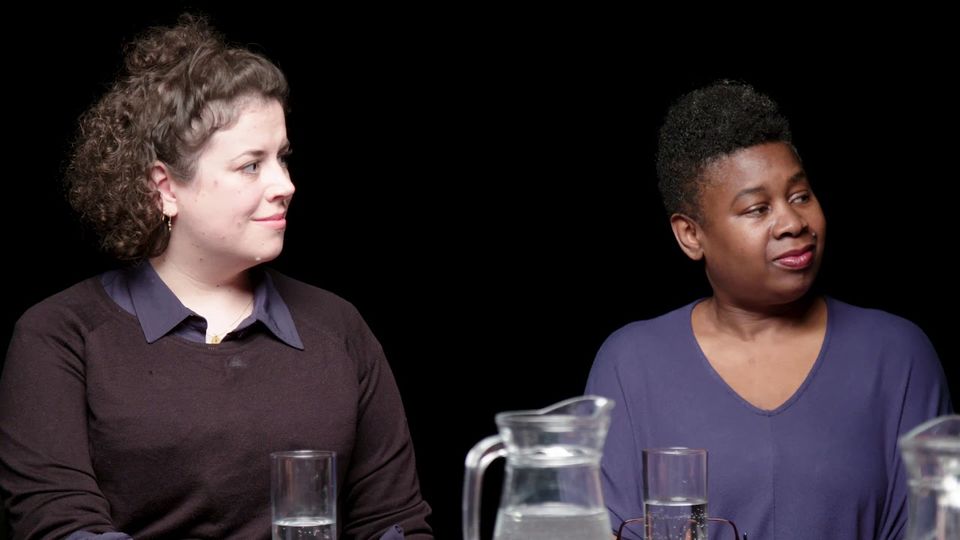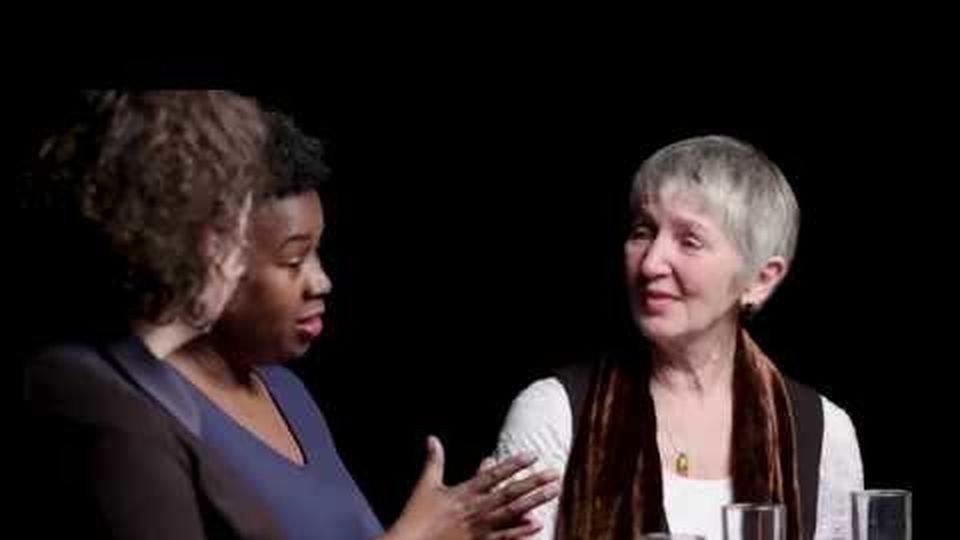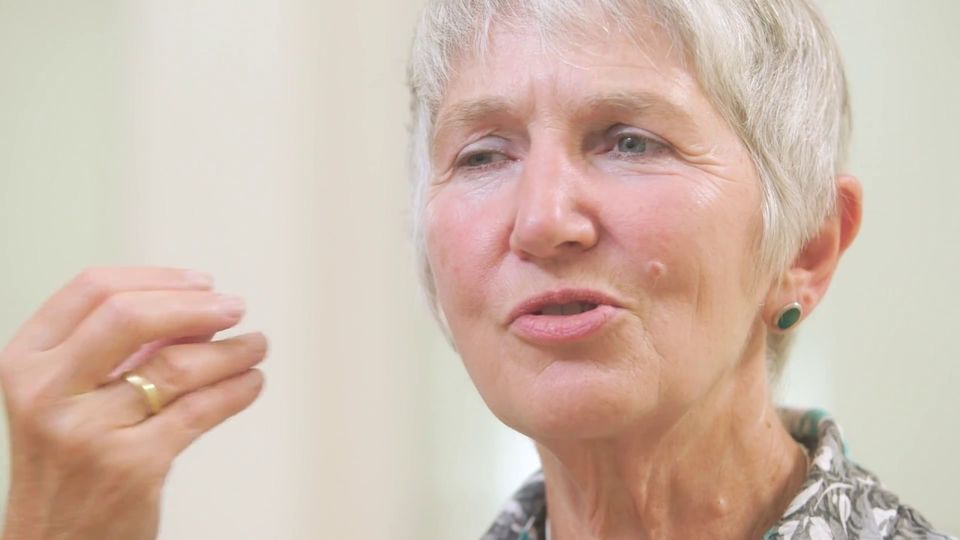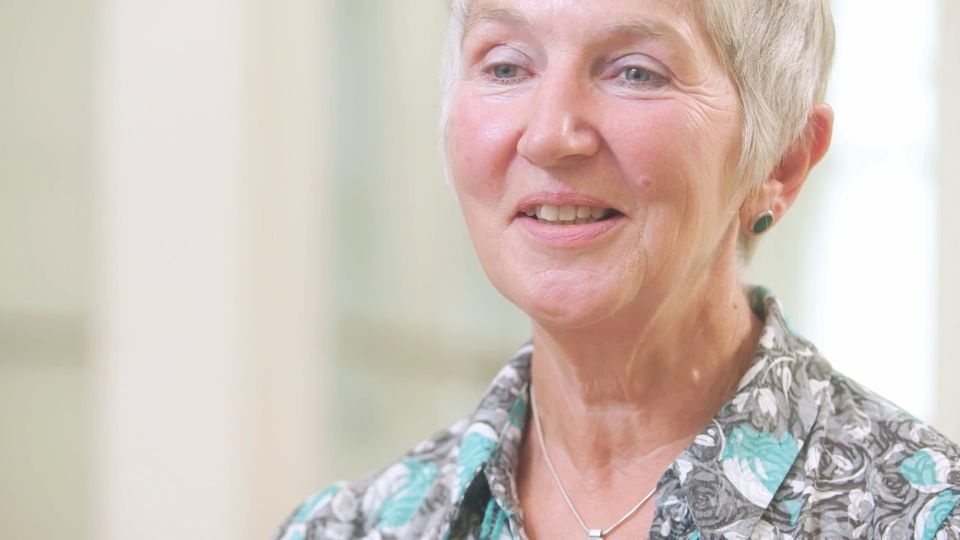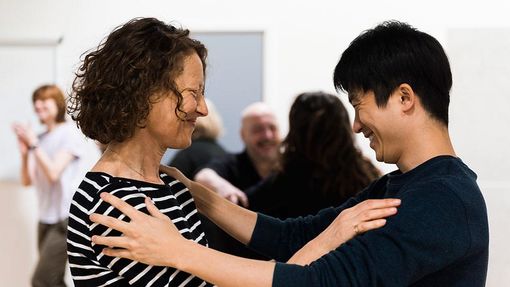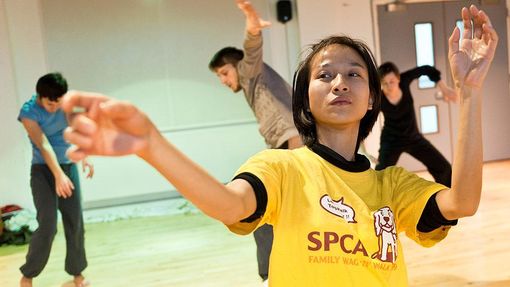Course information
Apply now buttons
Apply here:
Buttons
About this course
Voice Studies courses at Central are nationally and internationally renowned, giving a specialised education in the study and practice of the spoken voice. These courses are for graduates of appropriate disciplines who wish to follow a career in voice teaching and who seek specialised study and practice in voice and speech.
- Study with internationally renowned voice tutors and professionals
- Learn pedagogical skills for the teaching of voice on this world-leading course
- Network with actors, accent coaches, speech therapists and singers and undertake education and industry placements.
For information on the structure of both MA and MFA courses, see ‘Course Detail’ below.
Cutting edge practice and thinking is the norm at Central. Exciting research activity ongoing in this area and led by Dr Duska Radosavljevic can be found here
Accordion
-
Course Detail
Structure of the MA and MFA Courses
In the first year of the MFA, you join the MA students for terms one to three of the course. The MFA then extends into a second year, beginning in October, which involves a mix of workplace attachments, mentorships and observed practice, in close liaison with members of the related industries. You are encouraged to specialise in one or more directions, building on the first year’s teaching.
Term one develops awareness of personal and professional needs and gives a foundation in practical skills, related academic disciplines, vocal pedagogy and research methods for the more applied work that follows.
Term two builds on the previous term by relating acquired knowledge and practical experience to the needs of others and seeks to develop growing confidence and abilities. Practical experience of teaching, both of groups and of individuals in institutions where voice work is relevant, begins in this term.
Term three consolidates the work already done, extends the teaching experience in a variety of contexts, and allows for a deepening of thought about voice as a field of study. It includes advice on preparation for a professional career.
Term four of the MA is focused entirely on the preparation and submission of a portfolio or dissertation.
The MFA second year widens your opportunities to develop voice knowledge within a variety of professional contexts in which pertinent questions can be asked, protocols tested and new structures suggested. This involves a combination of workplace attachments, mentorships and reflective observation where appropriate. You are expected to undertake tutorials and occasional seminars throughout the year, although these may be via Skype, as part of an ongoing process of pedagogical reflection and engagement leading to the submission of a final dissertation and reflective pedagogical documentation.
The MFA offers a further embedding of skills and concepts learnt during the first year. In some countries the MFA is more recognised, particularly for those interested in teaching, or researching in a higher education environment.
An MFA top-up year for those with an existing MA in this subject is also available.
Assessments
During the first three terms of both courses, assessment is through written work, practical projects and teaching practice.
In the fourth term of the MA, you complete a dissertation or portfolio focusing on your specialist area of enquiry arising from the work of the course.
In the MFA second year, assessment is by means of documents based on field experience and related research.
-
Entry Requirements and Interviews
An understanding of voice informed by appropriate work experience of at least two years is normally an essential prerequisite, or a degree (or equivalent) in a subject which has included an element of voice and speech studies. Graduates of other disciplines will be considered if they can provide evidence of previous training in voice and/or speech. You will also normally be required to have the equivalent of 20 hours teaching experience in the field of voice and/or performance-related subjects. Applicants without an undergraduate degree (or equivalent), but who have professional experience working with voice for at least two years, e.g. actors and directors, will be considered for interviews for non-standard entry. An offer will normally only be made after interview.
A top-up year for those with an existing MA or PGDip in this subject is available.
We particularly encourage applications from groups currently under-represented in higher education, such as students with disabilities and members of Black, Asian and Minority Ethnic groups. Find out more information on Central’s commitment to equality and diversity.
English Language Requirements
Applicants for whom English is not their first language are required to prove their English language proficiency by gaining an overall score of 7.0 in an IELTS test. We do accept equivalent English language qualifications.
While a test result is not required in order to submit an application, applicants are advised to gain this certification as early as possible and more information can be found through the English Language Requirements page.
Interviews
If you are selected for an interview for a place on the MA or MFA Voice Studies course, please be prepared to share and discuss the following questions:
1) Share a key example of a voice teaching/coaching experience and to identify a stand-out feature of this,
2) Identify a tradition of spoken voice work in your own practice or experience of being taught,
3) Discuss what you are conscious of in terms of the assumptions you bring into your teaching and coaching and their implications for raising wider social awareness issues in the training studio,
4) Discuss your research interests, however tentative,
5) Share an image you would use to describe your voice.
The interview process will also give you an opportunity to find out more about the course and the school.
Further information is in the How to Apply section.#
International Applicants
Central regularly welcomes students from all over the world – and we are proud to have a large network of alumni working internationally.
Visit our International Students pages for advice and information on studying at Central and living in London, if you’re not a home applicant.
There is no formal application deadline for our MA courses. Applications are assessed, and places offered on courses, on a rolling basis, and applications are closed when a course becomes full. Therefore, you are encouraged to apply as soon as possible.
-
Graduate Employment
Graduate employment and career pathways include:
- Chorus Director, Bromley Youth Music Trust.
- Voice Lecturer, Central, Royal Academy of Dramatic Art, Kingston University.
- Voice and Singing Tutor, Trinity Laban Conservatoire of Music and Drama.
- Voice Internship, Royal Shakespeare Company.
- Voice Tutor, Arts Educational.
- Head of Voice, Bristol Old Vic Theatre School, The Royal Welsh College of Music & Drama.
- Lead Vocal Supervisor, Mulberry School, London.
- Head of Acting and Voice, University of Oklahoma, USA.
- Voice Coach, Oregon Shakespeare Company, USA.
- Head of Voice, Head of Accents and Dialect Teaching, The Royal Conservatoire of Scotland.
- Lead Voice Trainer, business clients, Short Courses & Training, Central.
-
Recent Visiting Professionals
- Annie Morrison
- Joanna Weir Ouston
- Penny Dyer
- Tim Birkett
- Alex Bingley
- Ilan Reichel
- Natacha Osorio
- Frankie Armstrong
- Jacob Lieberman
- Edda Sharpe
- Barbara Houseman
- Meribeth Bunch Dayme
- Elspeth Morrison
- Kristin Linklater
- D’Arcy Smith.
-
Notable Graduates
Notable graduates of this course include:
Jess Chambers (2014) is a Voice and Dialect Coach. She has worked for a number of West End productions, such as the Royal Shakespeare Company’s Matilda The Musical, in London and Sydney, and the West End musical Made in Dagenham, as well as for other productions at The Young Vic, The Finborough Theatre and The Bush Theatre in London.
Caroline Goyder (2003) is a Voice and Public Speaking Coach and author of Gravitas: Communicate with Confidence, Influence and Authority. She is Founder and Creator of The Gravitas Method, designed to help others learn how to express themselves clearly, with passion and confidence. She regularly contributes as a voice expert on Radio 4’s Word of Mouth, BBC2’s The Speaker and BB4’s The Voice.
Stephen Kemble (2006) regularly works as a Vocal Coach for The Royal Shakespeare Company, recently working on their productions, Wolf Hall, Bringing up the Bodies, Queen Anne and Love for Love. He has also narrated many programmes across major TV networks such as, BBC TV, Channel 4, Channel 5 and Discovery Networks Europe.
Daniele Lydon (2009) has worked as a Dialect Coach for a number of West End productions including Harry Potter and the Cursed Child (The Palace Theatre), The Lion King (Lyceum Theatre) and Billy Elliot the Musical (Victoria Palace Theatre). She has also worked on a number of television productions, including Poldark (BBC), An Inspector Calls (BBC) and Girl Meets Boy (BBC).
Liam French Robinson (2011) is a Freelance Voice, Accent and Dialect Coach. His previous work includes The Bastard Executioner (FX Productions), Mr Selfridge (ITV) and Jonathan Strange and Mr Norrell (BBC).
Rebecca Root (2008) is an Actor, and Voice and Speech Teacher. She stars in Boy Meets Girl (BBC2), and as a Voice and Speech Teacher, her fields of expertise are speech training, accents and vocal clarity for actors and drama students, and vocal adaptation for transsexual and transgender clients.
-
Tuition Fees, Bursaries and Scholarships
Tuition Fees for 2024 Entry
MA/MFA Year 1 Fee
UK (Home) students: £11,550 (Full-time)*
Overseas students: £22,050 (Full-time)Please note that there may be additional costs that you need to incur as part of the training for the course.
Full information is available on the Tuition Fees and Additional Costs page.
Bursaries and Scholarships
Central offers a range of bursaries and scholarships. If you are holding an offer for a place on a course then you will be invited to apply for a bursary or scholarship.
*If you are a UK student but already hold a qualification at the equivalent or higher level to the one that you are applying for, then you may be classed as an ELQ student and be required to pay the same fee as an overseas student.
Student Feedback
“The teaching experiences I had on the course and the pedagogical and personal reflection that the teaching staff encouraged, helped me to develop my practice and prepared me for success in the profession. Through placements and mentorships, the course offered me the opportunity to connect with professionals who have been key to my career development.”
Jess Chambers
Graduated 2014, member of the voice teams for the RSC’s Matilda The Musical in London and Sydney and the Shaw Festival in Canada.
“I am coaching organisations and individuals in-house and digitally around the US towards clearer communication. If there is one thing that Central has given me to prepare me for this opportunity, it is the rigour of my research skills. I can’t praise Central enough – the commitment to the course is invaluable if one is willing to explore new territories.”
Joy Lanceta
Graduated 2016, Corporate Vocal Coach and Project Head of Global Learning USA.
Staff On The Course
Cathryn Robson is a vocalist, voice and singing coach, vocal pedagogy specialist and Fitzmaurice Voicework Associate Teacher.
Jane Boston is an experienced voice practitioner, a Lesbian feminist activist and an academic researcher.

